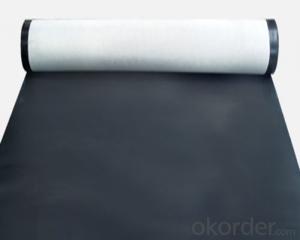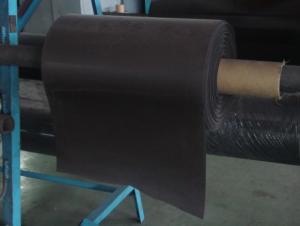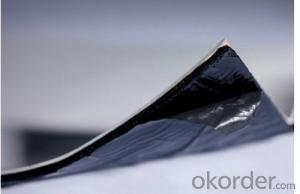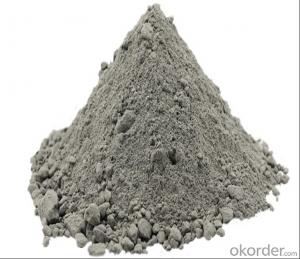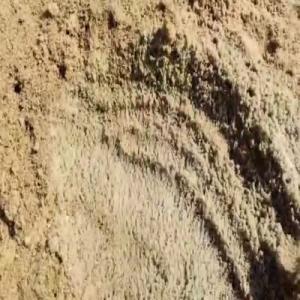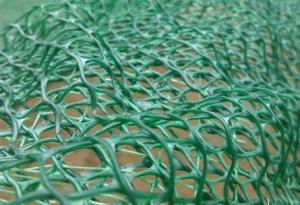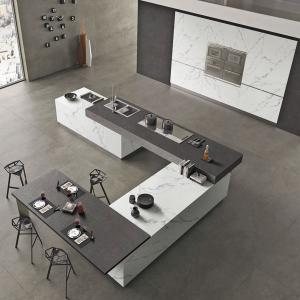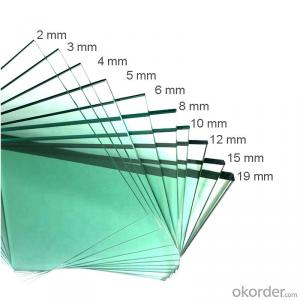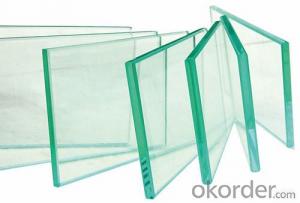EPDM Rubber Waterproofing Membrane for Roof Protection
- Loading Port:
- China main port
- Payment Terms:
- TT OR LC
- Min Order Qty:
- 5000 m²
- Supply Capability:
- 100000 m²/month
OKorder Service Pledge
OKorder Financial Service
You Might Also Like
Description:
EPDM (OP) Rubber Waterproofing membranes is a synthetic rubber, synthetic tire blends as the base material, adding reinforcing agents, softeners, antioxidants, curing agents processing aids to promote mixing by kneading, mixing, extrusion, rolling and curing, shaping and other processes can be processed into sheet curling volume of new high elastic waterproof material.
Application Range:
Mainly used in all types of Industrial and civil b uildings
roofing , office buildings, supermarkets, steel roofing, basements, tunnels, bridges
and other impermeable, waterproof construction .
Features
1) Excellent weather-ability, durability and size stability
2) Good adaptability to high and low temperature, UV resistant and anti-corrosion
3) High tensile strength and good elongation, accommodating to structure movement
4) Easy installation, solid joint, and no environmental pollution
5) Good rooting penetration resistance
6) Service life up to 50 years
Application
1) Roofs, Basement, Toilet
2) Industrial and civil building waterproofing
3) Geo-synthetic liner for swimming pool, channels, irrigation system
4) Especially suit for projects with high requirements in durability, anti-corrosion and deformation
Introduction for EPDM Waterproofing Membrane:
Tensile Strength N/CM | Normal temperature: 60 ; 60°C: 30 |
Breaking Elongation % | Normal temperature: 400 ; -20°C: 10 |
Tear Resistance N | 20 |
Impermeability, 30 min no leakage | 0.3Mpa |
Low Temperature Bending °C | -20 |
Heating Shrinking mm | Extension: 2 Shrink: 4 |
Heat Resistance (80°C×168h) | Tensile Strength % : 80 ; Keeping rate of adhesive breaking:70 |
Alkali resistance (10% ca (oh)2 solution,normal temperature ×168h)) | Tensile Strength % : 80 ; Keeping rate of adhesive breaking:80 |
Synthetic aging | Tensile Strength % : 80 ; Keeping rate of adhesive breaking:80 |
FAQ of Waterproofing Membrane
a.Can we get some samples before place order?
Answer: We can send the free samples to you by freight collect.
b.How many years can your PVC membrane guarantee?
Answer: We will guarantee the quality for 5 years at least.
c.Which countries you ever export the product?
Answer: We export the PVC membrane to South Africa, Middle east and even European countries.
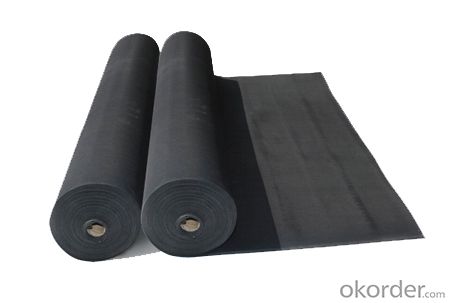
- Q:Can a waterproofing membrane be used on zinc surfaces?
- Yes, a waterproofing membrane can be used on zinc surfaces. Zinc is a durable and corrosion-resistant material, and a waterproofing membrane can provide an additional layer of protection against water infiltration, ensuring the longevity and integrity of the zinc surface.
- Q:Can a waterproofing membrane be used in elevator pits?
- The utilization of a waterproofing membrane in elevator pits is possible. Due to their subterranean location, elevator pits are susceptible to water intrusion from sources like groundwater or moisture. A waterproofing membrane acts as a safeguarding layer that is applied to the walls and floor of the elevator pit, effectively obstructing the passage of water. This protective barrier prevents water from causing harm to vital components of the elevator system, such as electrical equipment, pumps, and hydraulic systems. Implementing a waterproofing membrane in elevator pits substantially diminishes the likelihood of water damage and corrosion, ensuring the elevator's safe and efficient operation.
- Q:Can a waterproofing membrane be applied in cold weather conditions?
- Yes, a waterproofing membrane can be applied in cold weather conditions. However, it is important to note that the specific temperature range in which it can be applied may vary depending on the product and manufacturer guidelines. Some waterproofing membranes are designed to withstand cold temperatures and can be applied as low as -20 degrees Celsius (-4 degrees Fahrenheit), while others may have a higher minimum application temperature. It is crucial to follow the instructions provided by the manufacturer and ensure that the surface is properly prepared and free from any ice, snow, or moisture. Additionally, it is recommended to consult with a professional contractor who has experience working with waterproofing membranes in cold weather conditions to ensure the best results.
- Q:Is a waterproofing membrane resistant to algae or moss growth?
- Yes, a waterproofing membrane is typically resistant to algae or moss growth. The materials used in waterproofing membranes are designed to prevent the growth of organic matter, including algae and moss.
- Q:Can waterproofing membranes be used on foundation walls?
- Yes, waterproofing membranes can be used on foundation walls. These membranes are designed to prevent water penetration and protect the foundation from moisture damage.
- Q:Can a waterproofing membrane be used for a basement?
- Yes, a waterproofing membrane can be used for a basement. In fact, using a waterproofing membrane is highly recommended for basements as it helps to prevent water infiltration and moisture buildup. A waterproofing membrane is a thin layer of material that is applied to the basement walls and floor, creating a barrier against water. It acts as a protective shield, preventing water from seeping through the walls and causing damage to the foundation and interior of the basement. Additionally, a waterproofing membrane can also help to reduce the risk of mold and mildew growth, as it keeps the basement dry and moisture-free. Overall, using a waterproofing membrane is an effective solution for keeping basements waterproof and ensuring a safe and dry living space.
- Q:Can a waterproofing membrane be used in rooftop gardens or green roofs?
- Yes, a waterproofing membrane can be used in rooftop gardens or green roofs. It is an essential component to prevent water leakage and protect the underlying structure from moisture damage. The membrane acts as a barrier, preventing water from penetrating the roof and causing potential structural issues. This ensures that the rooftop garden or green roof remains well-maintained and functional.
- Q:Are there any environmental considerations when using a waterproofing membrane?
- Yes, there are several environmental considerations when using a waterproofing membrane. Firstly, the production and disposal of these membranes can have a negative impact on the environment due to the energy and resources required. Additionally, the chemicals used in some waterproofing membranes can be harmful to the environment and may leach into the soil or water systems. It is important to choose eco-friendly and sustainable options, such as those made from recycled materials or natural alternatives, to minimize the environmental impact. Regular maintenance and proper disposal of the membrane at the end of its life cycle are also crucial to ensure minimal harm to the environment.
- Q:Can a waterproofing membrane be used on plywood surfaces?
- Yes, a waterproofing membrane can be used on plywood surfaces. The membrane acts as a barrier to prevent water penetration, protecting the plywood from moisture damage and extending its lifespan.
- Q:Can a waterproofing membrane be used in crawl spaces?
- Yes, a waterproofing membrane can be used in crawl spaces to prevent moisture infiltration and protect the space from water damage.
1. Manufacturer Overview |
|
|---|---|
| Location | |
| Year Established | |
| Annual Output Value | |
| Main Markets | |
| Company Certifications | |
2. Manufacturer Certificates |
|
|---|---|
| a) Certification Name | |
| Range | |
| Reference | |
| Validity Period | |
3. Manufacturer Capability |
|
|---|---|
| a)Trade Capacity | |
| Nearest Port | |
| Export Percentage | |
| No.of Employees in Trade Department | |
| Language Spoken: | |
| b)Factory Information | |
| Factory Size: | |
| No. of Production Lines | |
| Contract Manufacturing | |
| Product Price Range | |
Send your message to us
EPDM Rubber Waterproofing Membrane for Roof Protection
- Loading Port:
- China main port
- Payment Terms:
- TT OR LC
- Min Order Qty:
- 5000 m²
- Supply Capability:
- 100000 m²/month
OKorder Service Pledge
OKorder Financial Service
Similar products
New products
Hot products
Related keywords
